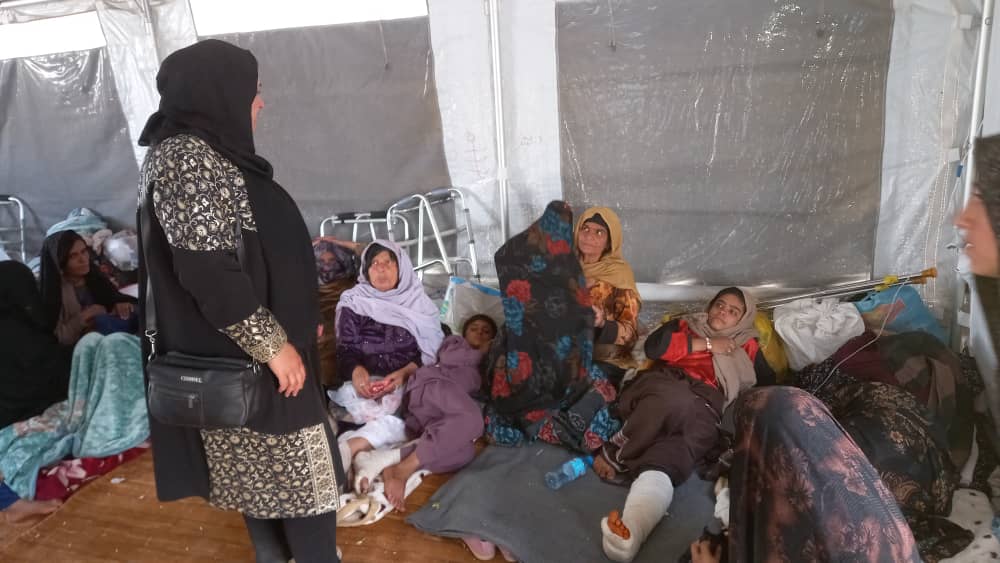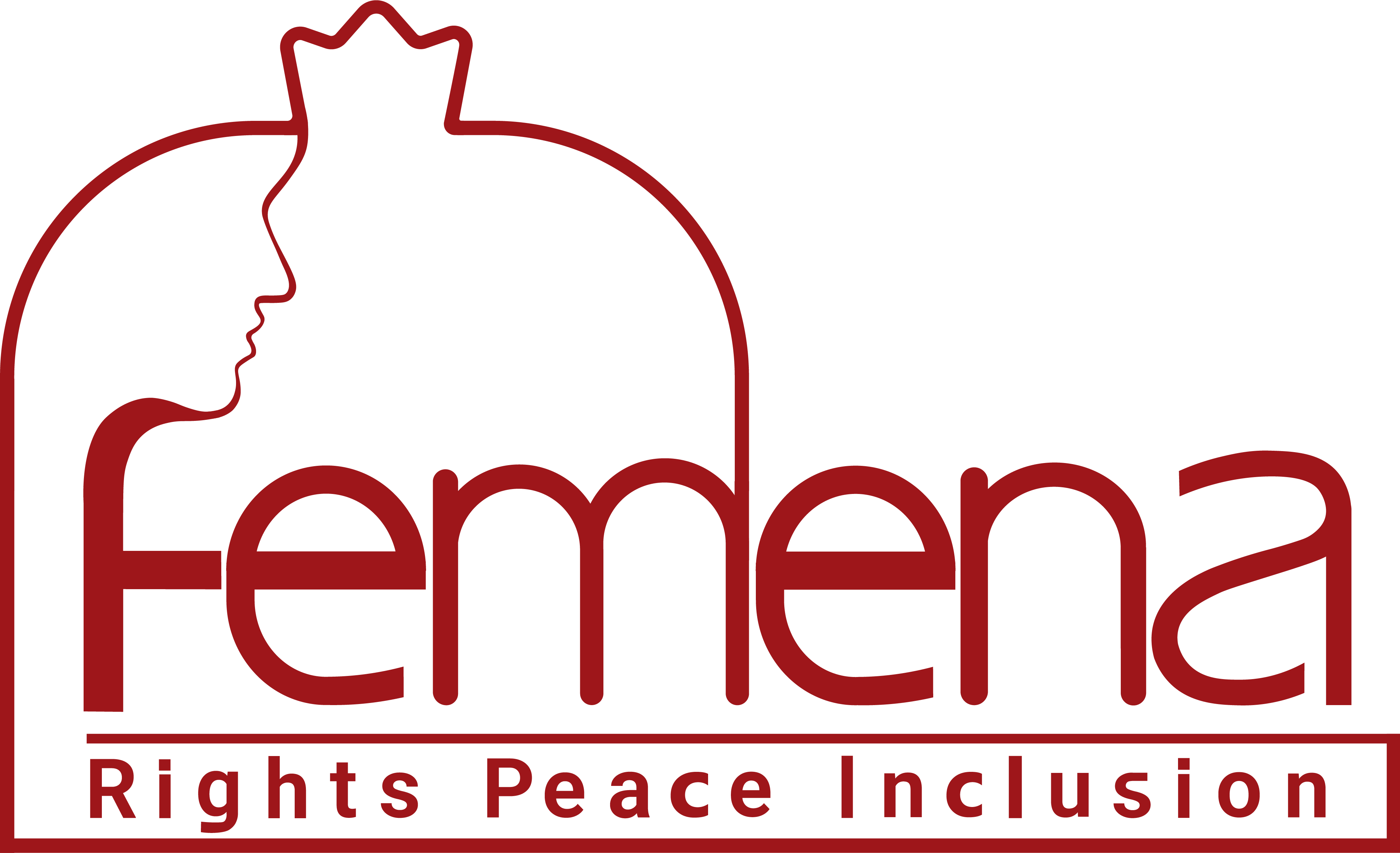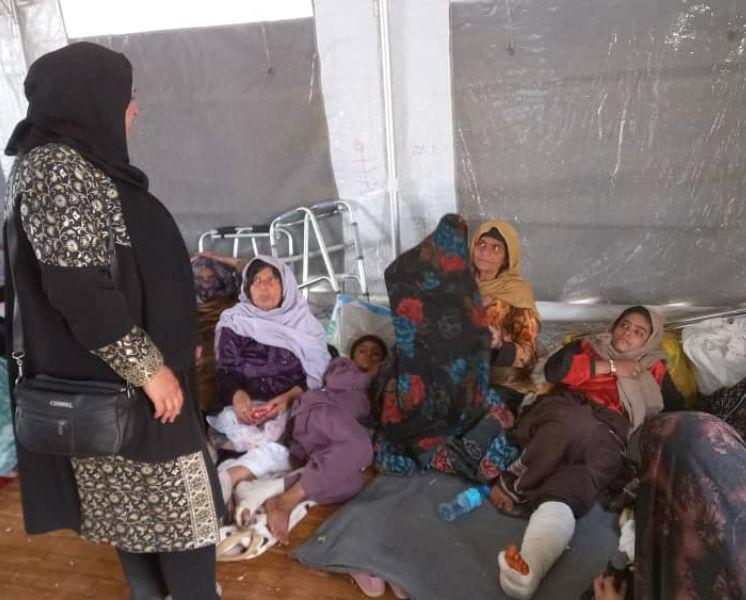
Introduction:
In recent weeks, Herat, Afghanistan experienced a catastrophic earthquake that profoundly affected the lives of its residents. The quake reverberated throughout the region, leaving countless families and communities grappling with its aftermath.The aftershocks of the earthquake continued in the following days, leaving people in a state of distress.
“We are constantly living in fear of aftershocks. When we go out to distribute relief support, we don’t know what the situation will look like when we return.”
Nilofar Neksear, poet and volunteer relief support provider
Among the affected, women have found themselves in an especially vulnerable position, encountering unique challenges and struggles in the disaster’s wake. Compounding their difficulties, the Taliban’s ban on women’s employment in the humanitarian sector has significantly worsened the situation. According to UN data, women and children constitute 90% of the earthquake victims.
Impact of the Earthquake
The earthquake has caused widespread devastation, leaving many families homeless and without access to basic necessities. The disaster has not only claimed lives but also shattered the already fragile infrastructure of the region, leaving survivors in dire need of humanitarian assistance. According to recent reports, a staggering 2400 people have lost their lives, with thousands more displaced, struggling to survive amidst the ruins.
“I have visited many villages, and I can share that the relief support by aid organizations is not being distributed evenly because the needs are very high and the amount of relief support is limited in comparison.”
L. Haidari, volunteer relief support provider
According to women Femena spoke with, people residing in the city center are not receiving adequate assistance, as aid is primarily prioritized for villages and districts most impacted.
“I live in the center of the city, which is not as impacted by the earthquakes as the villages around, but we are still suffering. The issue is that all organizations are focusing on villages and districts, and those of us in the city are not receiving help. Some private entities provide food for us every once in a while, but that is it.” Woman affected by the earthquake
Specific Needs of Women
Amid this crisis, the specific needs of women have emerged as a pressing concern. Women affected by the earthquake, especially lactating mothers, those who recently gave birth, and those with health issues, have found themselves struggling without essential supplies. The lack of access to hygienic facilities further exacerbated their challenges, leaving them in a vulnerable state. Femena interviewed several volunteers involved in relief support distribution to gain a better understanding of the situation.
“In some districts and villages there is more attention to the needs of people and in some there isn’t enough help being provided. As far as the needs of women for hygiene kits, no organization has thought to include this in their packages. Some of us volunteered to make these available for women. We distributed these kits among some communities, but the needs are high. Lactating women, women who just delivered their babies, and other women with health issues are really struggling.”
L. Haidari, Volunteer Relief Support Provider.
Exclusion of Women from Humanitarian Efforts
Unfortunately, women have been systematically excluded from humanitarian aid efforts, primarily due to the Taliban’s oppressive policies. These policies, including the exclusion of women from roles within INGOs and the UN as humanitarian workers, have significantly complicated the delivery of gender-sensitive aid to women and girls. This challenge has persisted since December 2022 when the ban was imposed.
“Women are disregarded during aid distributions. There are reports that they are even harassed.”
Aryan Aroon, writer facilitating relief support efforts from exile.
“The aid that is provided by aid organizations includes some tents, blankets, and food. So many families lost their loved ones. No one even helped them find and bury their loved ones in a dignified manner. Where there is some aid being distributed, even that is not distributed fairly. Community elders and Taliban members control the distribution of relief support, and the aid goes to their relatives and members first and foremost. This is the case in villages. In the city center, we have not seen any relief support distribution from big organizations; individuals and private companies are helping people to some extent, but it is not enough and their help does not respond to specific needs of women. There are not even toilets for women to use.” Woman impacted by the earthquake.
Recommendations
The aftermath of the Herat earthquake has highlighted the urgent need for targeted and inclusive humanitarian efforts. Women, already facing Taliban’s oppression, are in an even more precarious situation due to the disaster. UN agencies, and aid organizations, both local and international, must recognize these specific needs and act promptly by:
- Urgently pressuring the Taliban to reverse the ban on women’s employment in all sectors, including humanitarian aid delivery. This is essential to alleviate the impacts of such a large-scale crisis.
- Prioritizing the most vulnerable, including women, in humanitarian action, and ensuring fair and equal distribution of aid resources.
- Establishing safe spaces and facilities designed specifically for women, enabling them to access aid services without fear or discomfort.
- Implementing immediate action and strategic approaches to effectively address the challenges faced by vulnerable populations, particularly women, in disaster-affected areas.


